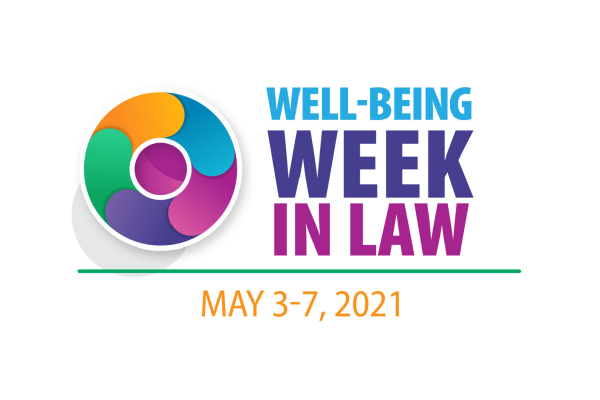Leadership skills are among the most valuable to build in any profession, and can be particularly important for lawyers during the pandemic.
. . .
A post on LCL MA’s Well-Being Blog redirects here to our Mass LOMAP Blog. Click here to return to LCLMA.
. . .
Leadership is a helpful skillset to build at any time in any career. Whether for career growth or success in any position, leadership skills help us work more effectively with others both in professional and personal relationships. The extraordinary events of 2020 have challenged the resilience of leadership and demonstrated the need for courage in leadership to create positive change, most urgently related to antiracism. Research shows the foundational aspect of leadership is vulnerability, which is particularly important for leaders seeking to be active allies, as the work involves making mistakes and taking risks.
Skill-Building
Importantly, leadership skills can be learned. Leading requires self-awareness and commitment to personal development, which is long-term and challenging work (Anyone Can Learn to Be a Better Leader, Harvard Business Review, 2020).
The work to build leadership skills is often uncomfortable. The HBR article notes the aspirational need for fearless introspection, feedback seeking, and committed efforts to change our behavior, when reality first requires us to act when we are fearful and it’s uncomfortable. Fortunately, positive psychology explains how we can learn to move from an existing “Comfort Zone” to a “Growth Zone”, through two intermediary stages of a “Fear Zone” and a “Learning Zone”.
Inclusive Leadership
The importance of antiracist work and work for intersectional inclusion for the strength of the legal profession is captured in the Diversity, Equity, and Inclusion Statement from the Massachusetts Supreme Judicial Court Standing Committee on Lawyer Well-Being:
We believe that the legal profession is strongest when its membership reflects the populations it serves. However, systemically oppressed attorneys, judges, and law students – that is, attorneys, judges, and law students from under-represented, historically excluded, and systemically oppressed populations – encounter countless barriers to entry, confront structural challenges to success, and must navigate daily micro- and macro-aggressions regarding their identities in the legal profession that are not faced by those outside these groups. Each of these barriers, challenges, and slights takes a toll on their individual and collective well-being, resulting in a hostile landscape for these practitioners in Massachusetts. The long-standing systems that have created this current hostility have done so by design, and we believe it is essential that the Massachusetts bar engage in conscious, intentional effort to dismantle them.
The urgency for change in the legal profession is captured in a recent ABA report, Left Out and Left Behind: The Hurdles, Hassles, and Heartaches of Achieving Long Term Legal Careers for Women of Color (2020) as well as another recent report, 176 Years: Later: Real Life Stories of Black Male Lawyers in Corporate America. Two of the ABA report authors discussed key takeaways in a November 2020 BBA program (summarized here), emphasizing that women of color need more sponsors speaking on their behalves when they aren’t present, in addition to mentors speaking to them. An earlier BBA program on effective allyship (summarized with additional resources here) emphasized that beyond listening to and amplifying the voices of oppressed groups, allyship requires action that often involves personal sacrifice, making mistakes, and taking other risks — both in and outside of formal leadership roles.
Courage, Vulnerability, Emotional Intelligence & Other Keys
The key to brave leadership is vulnerability according to Brené Brown, one of the biggest names in leadership research, a University of Houston professor and author of five #1 New York Times bestsellers, who has been studying leadership for 10 years. Her 2018 publication, Dare to Lead: Brave Work. Tough Conversations. Whole Hearts., offers a leadership skillset that can improve both our professional and personal relationships, which she also illustrates through her ongoing Dare to Lead podcast series. Brown has also studied shame and blame, which she notes contribute to problems related to diversity, equity, and inclusion.
In her first solo episode of the podcast, Brown discusses “The Heart of Daring Leadership,” which she identifies as courage — noting that courage first requires vulnerability. Brown shares an overview of the skillset needed for courageous leadership, explaining that vulnerability is foundational, so much so that it required as much space in her book as the remaining three skills combined, which she notes cannot exist without vulnerability. The remaining skills covered in Dare to Lead include: Living into Values, Braving Trust, and Learning How to Rise, which are summarized nicely by Unboxed Training & Technology here.
Brown shares additional insights about courageous leadership, including the importance of self-awareness, particularly related to our responses to fear. Explaining that courage is less about who people are and more about what they do, Brown observes that leaders are rarely fearless but that they still manage to take action when scared. Fear isn’t the problem, the problem is the response, which Brown describes as our “armor” — and the solution is to learn to lean into our mistakes. (More on how lawyers and law students can overcome perfectionism and learn to use failure here on our LCL MA LAP Blog.)
Brown also notes that courage (or a lack thereof) is culturally contagious, and needs to be designed for. She shares how her team actually uses the word “rumble” to replace “meet” as a verbal cue to help team members embrace the anticipated challenge. The Dare to Lead podcast series is designed to offer similar insight for listeners to have “practical, tactical conversations” and create a culture that sets the expectation of discomfort, where armor is neither needed nor rewarded, and where the irreducible requirements of care and connection thrive. (Creating the right culture also involves preparing for the challenging conversations themselves — find tips for navigating difficult conversations in the legal profession here on our LCL MA LAP Blog.)
More broadly, emotional intelligence is key to effective leadership. “Emotional intelligence” is the term Daniel Goleman introduced in 1995 following his research at nearly 200 large, global companies to represent the collection of softer, more personal qualities essential to leadership, as explained in the 2004 Harvard Business Review article What Makes a Leader? (HBR has collected their articles published HBR On Leadership here and HBR On Emotional Intelligence here.) Additional research demon The 12 elements of emotional intelligence, which spans four domains, are unpacked in a 2017 HBR article by Daniel Golemand and Richard E. Boyatzis.
- Self-Awareness Domain: Emotional self-awareness.
- Self-Management Domain: Emotional self-control, adaptability, achievement orientation, and positive outlook.
- Social Awareness Domain: Empathy and organizational awareness.
- Relationship Management Domain: Influence, coaching and mentoring, conflict management, teamwork, and inspirational leadership.
Additional recent highlights on effective leadership follow:
- Storytelling Can Make or Break Your Leadership (HBR, 2020). “Telling a compelling story is how you build credibility for yourself and your ideas. In this piece, the author draws on his experience as a speaker, publisher, and author to illustrate five characteristics of effective storytelling. He suggests that strong stories must be audience-specific, clearly contextualized, human-centric, action-oriented, and humble. Whether you’re winning over a colleague, a recruiter, or an entire conference audience, making sure you stick to these guidelines will help you convey care and compassion when presenting even the most daunting of ideas.”
- 7 Questions Every Leader Should Ask Themselves at the End of the Year (Inc., 2020). Identifies questions to reflect upon annually to grow leadership skills: (1) Who or what would you like to praise? (2) What would you like to praise yourself for? (3) What would you like to let go of moving into the next year? (4) What did you love most about this year? (5) What would you want more of, or want to be different in the next year? (6) What would you need to feel closure this year? (7) What’s next for you in the week ahead?
- 7 Powerful Habits of People with High Emotional Intelligence (Inc., 2020). Identifies the following examples, a couple of which appear redundant but worth repeating: (1) They seek to support, (2) They watch their language, (3) They don’t assume, (4) They embrace silence, (5) They focus when it’s time to focus on others, (6) They admit their shortcomings, (7) They don’t assume the worst. Also on the topic of habits, find keys to habit-building here.
- No One Is Talking About the Real Problem with Working from Home (Fast Company, 2020). “(Remote work’s) weaknesses arise when leaders fail to create new ways for employees to connect.” Research from VitalSmarts found that “surprisingly, a large minority of employees report they are working together better since their forced separation,” and that “almost every intervention leaders used had a positive effect on social capital. Some had a greater effect than others, but most everything produced something. Healthy organizations were those where leaders worked actively to build social capital.”
- Leadership in a Crisis: How Leaders Can Support Their Organizations During the Covid-19 Crisis and Recovery (McKinsey, 2020). “This collection of articles draws together McKinsey’s expertise on five behaviors to help leaders navigate the pandemic and recovery: organizing via a network of teams, displaying deliberate calm and bounded optimism, making decisions amid uncertainty, demonstrating empathy, and communicating effectively.”
- Authenticity is a Double-Edged Sword (WorkLife, 2020). “Be yourself. Be true to yourself. Bring your whole self to work. In the age of authenticity, this is common advice. But evidence shows that when we express ourselves in the wrong way or at the wrong time, it can backfire.”
Free & Confidential Consultations:
Leadership is often heavy, and lawyers, law students, and judges in Massachusetts can discuss concerns with a law practice advisor, licensed therapist, or both. Find more on scheduling here.




